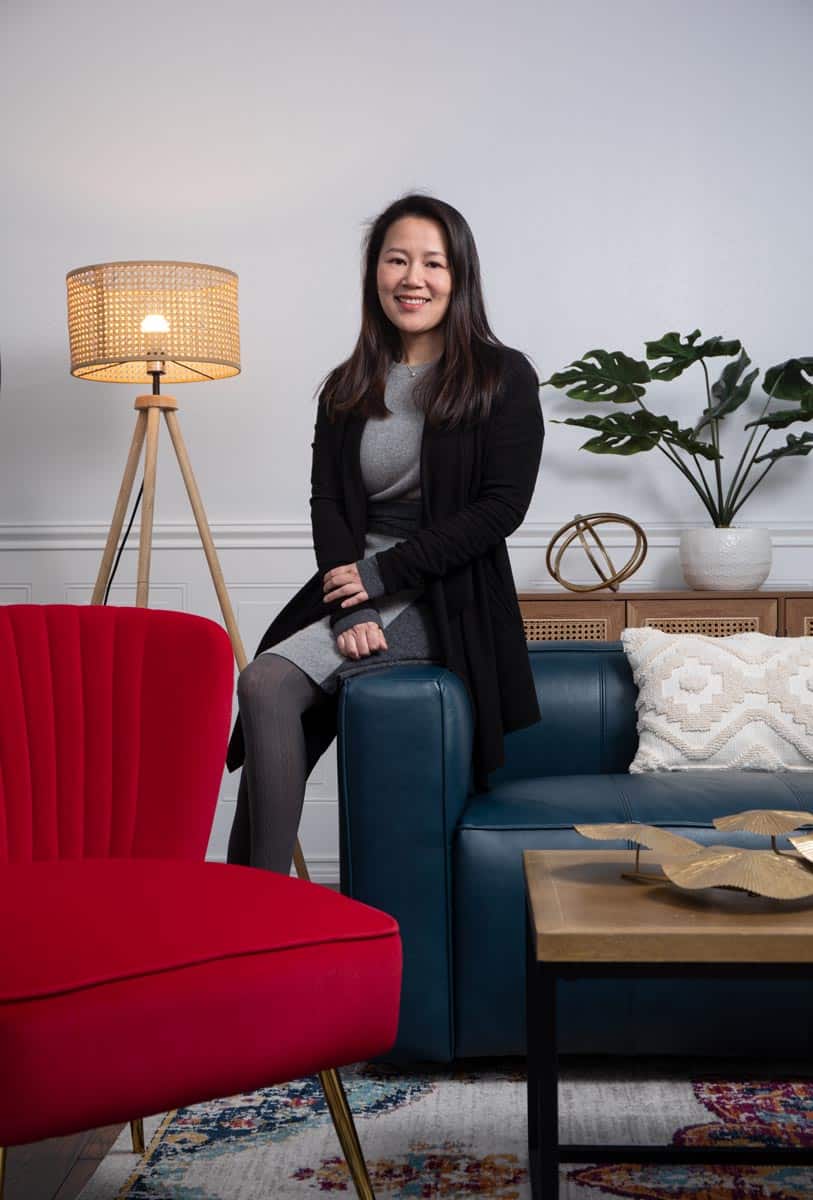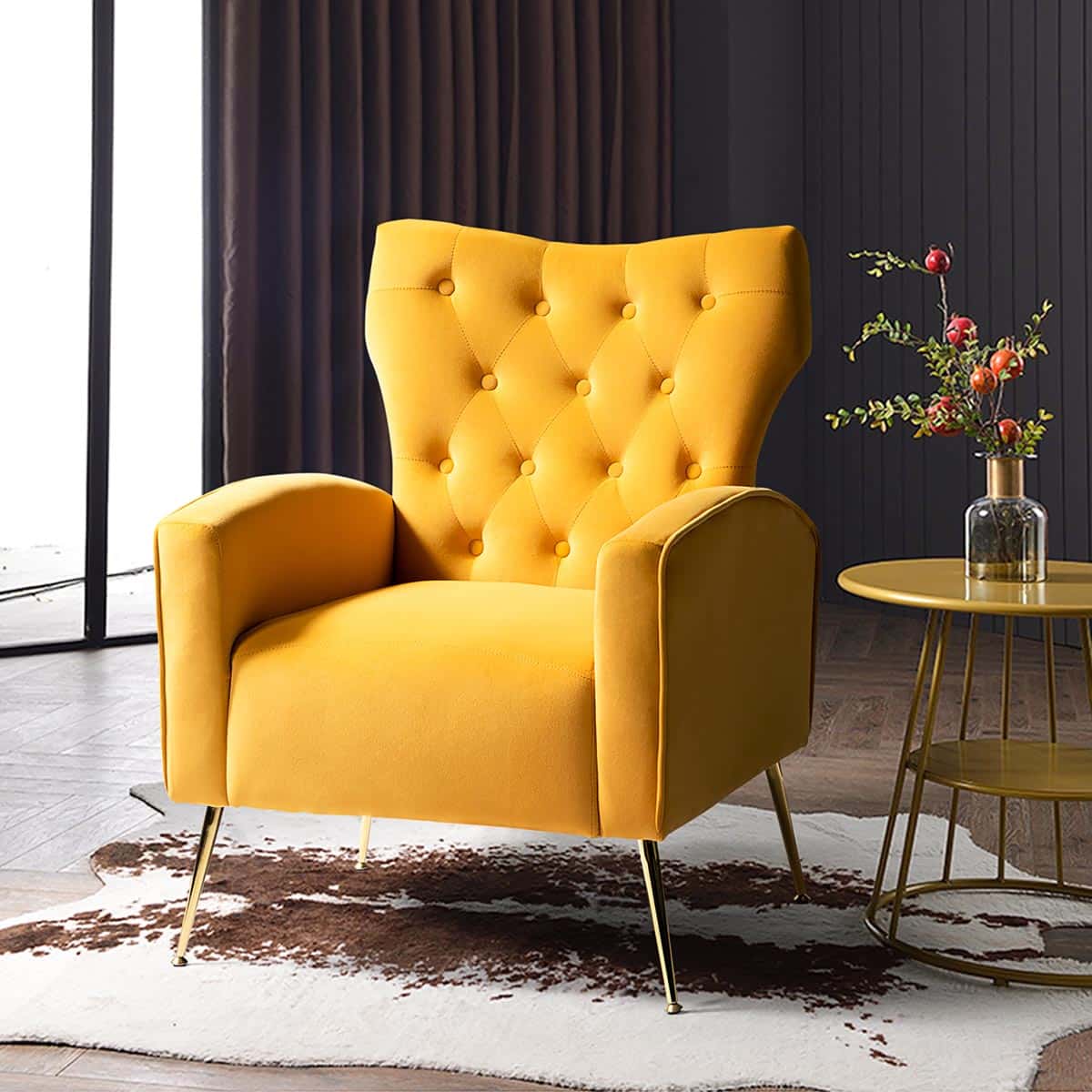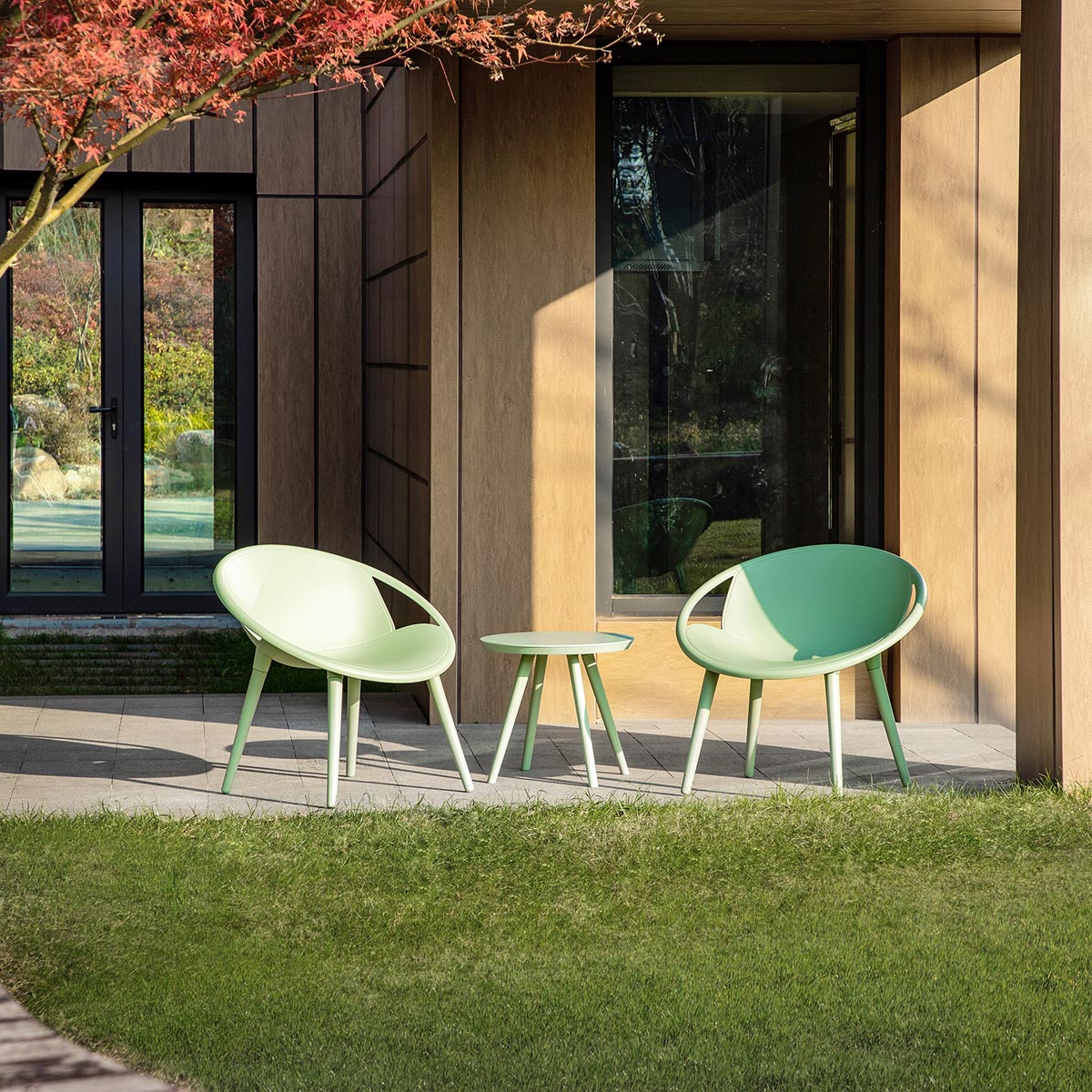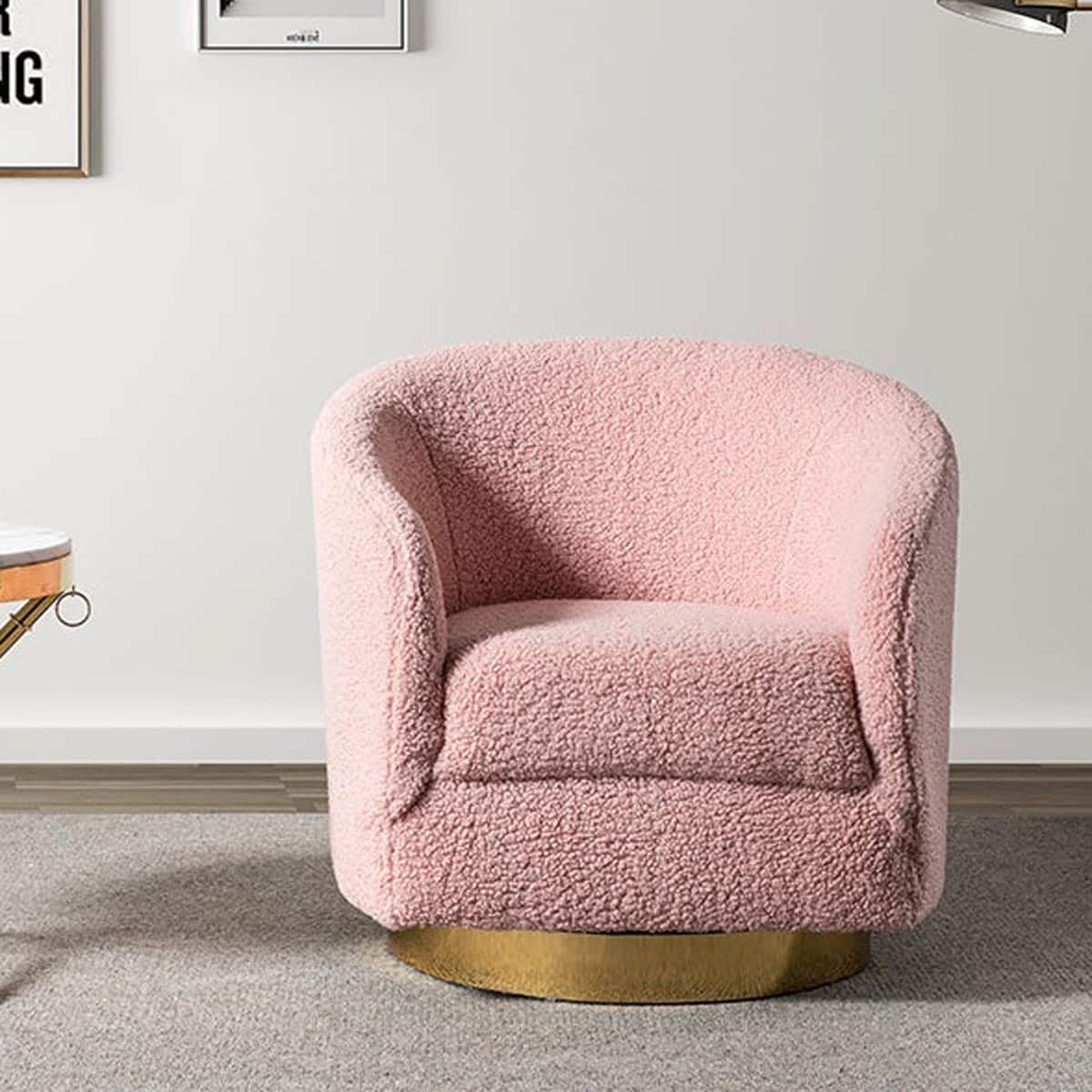
Little-known Fort Worth home furnishings company sees huge growth since starting in 2019
By Scott Nishimura
Photography by Ralph Lauer
Little-known Fort Worth furniture company grows to $135 million in sales — just since 2019
Here’s the first thing to know about Hulala Home, a little-known Fort Worth home furnishings company that reports its sales have grown to $135 million since it started up in 2019. Located next to railroad tracks in a former Coca-Cola bottling plant on East Hattie Street in the slowly redeveloping Historic Southside, it’s likely not where you’d expect to find it.
Entrepreneur Jie Melchiors, who developed the nearby Connex Fort Worth office complex out of surplus shipping containers in 2018 with her architect husband, Matthijs, co-founded Hulala with a partner in Shanghai as a textile concern.
Today, the company has warehouses in Houston and New Jersey. The owners switched to furniture from the textile focus during COVID-19, and their midrange products have found strong markets in second homes, Airbnb rentals, student apartments and dorms, and offices, Melchiors said.
“People never went online to buy furniture,” she said. “COVID changed the market. Now consumer habits have changed. People are buying online.”
The company’s Hulala Home consumer brand sells through outlets such as Wayfair, Shopify, Amazon, Overstock, Home Depot and Walmart. The company also sells directly from its website, hulalahome.com. Home Depot carries Hulala as Jayden Creative.
The majority of customers are women, 24 to 45 years old, and professional, Melchiors said. The furniture’s look is decidedly “modern, professional” and available in a wide range of colors, she said. “You don’t see leather recliners in this much color.”
Customers have to attach the legs to the furniture pieces upon delivery and slide seat backs and armrests into place. For those with limited skills, the company offers a panoply of instructional YouTube videos set to music. Hulala also offers a liberal return policy, Melchiors said.
The focus on online distribution over brick-and-mortar means “you can buy a chair for a very affordable price,” with quick shipment, she said. “People don’t want to wait that long.”
Melchiors credits Wayfair for helping the company position itself. “Wayfair pushed us to do more things,” she said. “They said we needed more product. It really pushed us to a different level.”
The furniture company’s genesis came during a visit to the United States in 2016 by a friend from China who subsequently became Melchiors’ partner. “She was looking for a warehouse to sell textiles and was looking for an operator here,” Melchiors said.
The company first moved into furniture with an office chair that sells for $200, and broadened into living, dining, bedroom, outdoor and other office products. The company manufactures some of its products and has others made internationally by third-party factories, Melchiors said. Her partner, who lives in the Chinese city Hangzhou, manages product design and manufacturing.
The company today receives 100 shipping containers of furniture per month, mostly through its warehouses in Houston and New Jersey, she said.
The company’s largest markets are in New York, Florida, California and Texas, as well as Chicago and Seattle, largely in places where customers live and function in “smaller settings,” she said. “There are so many apartments in Texas.”
The company has 14 employees, including six in Fort Worth, five in Houston and three in New Jersey, Melchiors said.
Melchiors, 40, grew up in Shanghai and was educated in applied accounting. She and her husband moved to Fort Worth in 2006, via his connections to companies in Dallas.
They were thrilled to find Fort Worth’s Near Southside and, by extension, the Historic Southside. Small businesses continue to emerge and thrive, and Melchiors said she and her husband expect to capitalize on the “amount of change happening in both of our industries.”
“A lot of American cities don’t change very much,” she said. “There’s so much we can explore. It’s impressive.”




